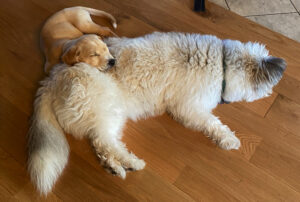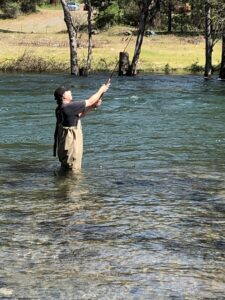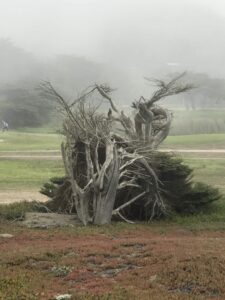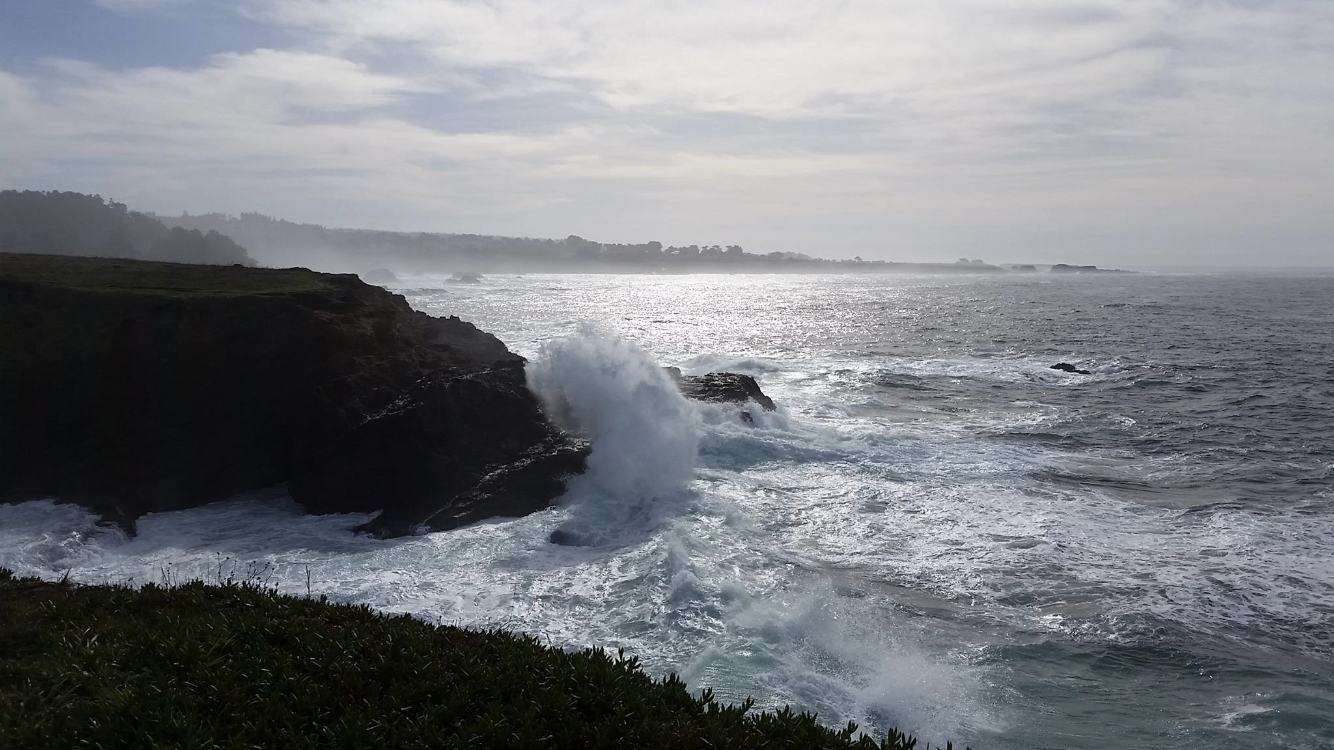Grief can cause deep sadness, usually when a loved one dies.
Everyone knows we grieve the death of our pets. Sometimes, it’s easier to grieve for pets than people. Our house is filled with grief today. In the space of six days, we went from Animal Farm to one indifferent cat. Blue Eyes found his dog, Alan, left for dead, signs of a violent, vicious attack evident in the backyard.
I returned my dog, Asha, the perpetrator, to the SPCA the next day. Fear that she would turn on another dog or a child was at the forefront of my mind. We let Alan go six days later.
Grief is a complex emotion. When I grieve for an unspecified time, I am overcome with sorrow so intense I cannot stand. My grief for Asha started before I lost her because even though she was still here, I knew she would be gone soon. It took my brain a day to catch up with my heart.
When I kissed her, for what I knew was the last time, I walked back to my car, tears streaming down my face. After my friend Pat left, I went into the house. I did the dishes. I washed a dish and sobbed into a towel so my daughter couldn’t hear me. I worried that Asha was stuck in a cage, alone, which she would hate. It broke my heart and still does, to think that she might believe I didn’t love her anymore or that I blamed her for attacking Alan. I don’t.
I was crouching on the floor, crying into a dish towel, in front of the cabinet where we store plastic bowls. After sobbing and retching it all out, I went back to washing dishes, tears still streaming down my face. Blue Eyes came up behind me and rubbed my back. When he asked, “Are you okay?” I lost it, shaking with grief. I felt guilty that I didn’t insist we get rid of her the first time she was aggressive. “She probably thinks I don’t love her anymore, and I’m punishing her.” Then, all the sadness rushed out of me at once. My daughter came into the kitchen for a group hug, then the grief left. I haven’t cried like that since. I still feel sad and tear up, but the anguish passed. The whole experience was a terrible, unfortunate situation. Asha was in our lives for a year and a half, and in 24 hours, she was gone.
Poor Alan was another story. He was 11 and never met a human he didn’t like. While he was an old man dog, rickety, wobbly, and half-blind, he was all love. He could detect the sound of our cars over traffic and trains. He was always waiting at the front door with a cheery smile, wagging his tail. He was on your side no matter what. Blue Eyes was his dad for 10 years.
Asha essentially killed Alan when she attacked him. I won’t go into all the gory details, but he was so damaged he would never be the same. No medical intervention could heal him. He would not return to his former self. He fought hard, though. For the last week of his life, Blue Eyes called him Lazarus.
During this experience, I realized that I have been lucky. I haven’t lost many people I love as an adult. I learned grief at a young age, but watching a partner grieve is a different experience.
Blue Eyes likes animals more than people. He is a burly, rugged man’s man. Losing Alan was a huge loss. He rarely cries, but he leaked tears during the week that Alan suffered.
When he called to tell me what happened, his voice shook. He was scared. When we brought Alan home, he slept on the floor with him for two days, talking and cooing. He fed him, sitting up in his lap, and held his head up for him so he could look around. The muscles between Alan’s head and neck were severed. He was never able to lift his head again.
Slowly, over six days, we came to grips with the fact that Alan would never be the same and could not be mended. After a visit to the vet, we’d rally and hope again, only to realize later that the improvement was superficial. Watching him try to lift his head, stand up, and become frustrated was agonizing. He tried and tried, but he just flopped around.
Finally, we had to decide. Alan was suffering. He stared with vacant eyes and barely moved after trying to stand up and falling repeatedly. His frustration increased every day. Alan was a watcher. He liked to be in the middle of things.
My first memory of him is in the kitchen. The kitchen floor was tile at his old house, and the dining room floor was hardwood. There was a clear line between the two rooms. When Blue Eyes said, “Get out of my kitchen!” Alan would sit on the hardwood floor and watch. When he thought Blue Eyes was sufficiently distracted, he would put a paw on the kitchen side of the line and wait. If Blue Eyes didn’t notice, Alan would inch his way back into the kitchen, hoping for a better whiff of whatever was cooking, a dropped morsel, or better yet, a hunk of meat dropped right into his mouth by Dad.
A few months prior, Alan decided his favorite spot to sit and watch was from the top of the couch. He liked to see out the living room window like Asha. He took naps up there on the cushions. He also liked to dig at the cushions to make himself more comfortable, which we didn’t like much. He was a special dog and a good friend.
I grieve and move on fast. I can’t really say why. I live in fear of losing people who matter. I see grief as something that drags on and on, and it scares me. Maybe I’ve shut off my grief valve, so it only works in spurts.
What I found during that week is that my pain hurts me far less than the pain I feel watching others grieve. I’ve spent a lot of my adult life grieving—my father’s death, broken trust, broken hearts, failed marriages, lost dreams, children in trouble, and health problems. I found that I don’t like being helpless. I don’t like to watch the train coming, bringing pain and heartache, with no way to stop it. I’m a snarky girl. I find I don’t like situations where humor is not appropriate, where it fails to improve the mood.
For six days, I watched the man I love in pain. I watched him accept that Alan would need to be put down because his quality of life would not be acceptable and then believe there was hope again. It happened over and over. It was torture to watch him go through it. Torture because all I could do was reheat water for hot compresses, bring cheese for Alan’s medicine, fetch Blue Eyes a drink, and watch and wait.
When the decision and the appointment were made, I wasn’t prepared. I grew up on a farm. Animals live and die all the time. Of the pets we had, I remember their deaths more than their lives. I remember standing in the front yard when our principal ran over our dog, Lady. Our other dog got his chain twisted up and died of dehydration on a hot summer day. Our Saint Bernese Mountain Dog got an infection. Her brain swelled and killed her. The more I write, the more animal deaths come to mind. My dad’s horse, Silver, died from gout. My dad walked him around and around the training ring till he died; even as a kid, it was heartbreaking to watch. Chickens being butchered as I watched from the second-floor window. My brother screaming as they ran around with blood spurting out their necks. I laughed, but I think it was because he was freaking out, and the chickens looked so strange with no heads, still walking around. Even though I knew that happened, it was a surprise. I’m really not the sadistic type. Finally, me walking around a corner to see my grandfather slit one of our bunny rabbits in two. The only animal whose death I don’t remember because I wasn’t there was my dear dog Noogsy. I didn’t know Noogsy in his old age. I don’t think I ever saw him after the divorce. I remember all the good times I had with him. When I remember him, he is still young.
I cried when we stood around the table to put Alan to sleep. Dr. Frank apologized and said it was a sad situation. Blue Eyes cried, too. One moment, Alan was alive, and then he was gone. The doctor verified that his heart stopped and left us alone. I hugged Blue Eyes for a long time, knowing he’d feel better if he sobbed but doubting he would let go. At first, it was an awkward sideways hug, but then I turned and squeezed him as hard as possible. I smoothed his hair over and over again. I did everything I could to soothe him until I remembered that grief is a no-heal zone at first. True grief is endless. It never goes away. It just becomes less intense. When I lose someone today, all the grief I’ve experienced in my lifetime comes back to me in a rush, like the breath I take when I come up after staying at the bottom of the pool too long, like when a child hurts themselves so badly they stop breathing for a few seconds to wind up and really scream.
When he pulled away and gave me a kiss, I told him, “Go smoke.” He said, “Thank you,” with so much gratitude, I started crying again. I didn’t sob or cry to the “huh, huh” stage. I leaked. Tears streamed down my face as I paid for the procedure. I felt bad for losing Alan. I truly did. He was a white puffball of happiness. But I ached that Blue Eyes hurt more.
Since then, I’ve felt guilty. I feel bad for Blue Eyes and guilty that I’m not as heartbroken. Blue Eyes likes animals more than people. I don’t. I love animals. But I love people more. I get my support and comfort from people. But there are hurts that feel better when a pet is close.
The gift in all this is that I know Blue Eyes better. I love him more for having seen him go through this. I know his toughness is more of a ruse than I thought. He is tough, no doubt. But tough doesn’t mean untouchable and insensitive. I see underneath. I see the love. I can see it with my own eyes.
When my daughter saw Alan with tubes sticking out all over the place, she started to cry. Her grandfather died in the hospital with tubes all over him, too. She didn’t want to go near Alan. She was afraid. I told her, “Love is a gift. When we lose someone, we honor that gift with our grief. With our grief, we say, ‘You were special to me. You were important to me. I love you.’ We can’t hide our grief away because it’s too painful. We must embrace it and keep the person we love alive by talking to them, writing them letters, and telling their stories. Love is a gift that sometimes hurts.” I asked her, “When I die, you’ll still talk about me, won’t you? You won’t stop talking about me because it hurts?” Since she missed her grandfather, I suggested, “Maybe it would help to write letters to him, tell him that you miss him. That’s what I do. Writing helps.”
Today, I called my husband while I was driving home. When he answered, I knew something was wrong. I asked him, “Did you have a good day, dear?” Heavy sigh, “No.” I asked, “What happened?” He said, “I realized I don’t care. When you said you were excited to go on vacation, I realized, ‘I don’t care.’” I tried to talk about dealing with loss, but he changed the subject. Sometimes, grief is private. You just have to go through it, to sit with it and accept, truly, that your loved one is gone, that they are never coming back. It’s not a talk-it-out problem.
Men say that women are mysterious, enchanting creatures. Okay, well, some men say that. We don’t care what the others say. Let’s classify what other men say as non-productive nonsense and move on. Men mystify me, especially the man’s man. I conduct daily human behavior research. I don’t do anything with it but amuse myself. I find it fascinating to watch a man who is not supposed to feel but is, in fact, complex, sensitive, intelligent, compassionate, empathetic, and thoughtful work out overwhelming, painful feelings. Blue Eyes managed. He didn’t handle it like I would. At the time, I didn’t know how I would handle it. He was grumpy gruff, and sometimes, he didn’t care. It was hard because he lost Alan in such a sudden, violent manner. Trying to reconcile, rather than get stuck in, his anger at Asha for killing Alan made it worse.
I didn’t realize how much a part of our lives the dogs both were. One morning, I woke up in a rush, wondering if Alan had recovered, only to remember he was gone. If I got up to go to the bathroom, I walked around him even though he wasn’t there anymore. I expected both of them to come running when I opened the door. An oppressive silence descended upon the house. But slowly, the pain fades. Now I think of them and hope they are okay in dog heaven. My friend says her dog, Jenny, met them, and they’re fine.
We have a new rescue dog now, Buddy. He’s a giant white Labrador Retriever/German Shepherd mix. He channels both Asha and Alan. Blue Eyes feels better. Buddy has lightened up the atmosphere. But the other day, I was talking about putting Buddy’s pillow at the end of the bed, and Blue Eyes teared up and said, “I just got an image of Alan tangled up in the electrical cords down there trying to stand up.”
When I started writing this post, I wanted to write about how hard it is to watch other people grieve and maybe give a sort of tribute to Alan and Asha. I felt I wasn’t grieving enough. On February 17, 2015, my good friend Barnacle died. At first, I worried that I wasn’t capable of feeling grief properly, but I quickly found that wasn’t true. With him, my grief was pure. It didn’t get mixed up with other grief. I didn’t wallow or feel sorry for myself. For a second, I thought, “What’s it all for if we just die?” But I turned my focus on how blessed I was to have had him in my life, and since I worried he didn’t know how much I cared about him, I vowed to make sure my living loved ones knew.
I was honored to speak at Barnacle’s memorial service. His family showed me that I was as important to him as he was to me. Even though it’s hard for me to talk or think about him sometimes, I share my grief and my stories. I love him. He was the best kind of friend, a quality human being. His influence in my life changed my perception of myself. Because of him, I embraced the part of me that I once hated most and allowed people into my life in a way I never could before I met him. I tell his stories to keep him alive. Plus, when I tell his stories, I also give people who don’t know him the chance to know him. We can survive together, what we cannot survive alone.
For more information, see the article about Grief Therapy: All You Need to Know.




